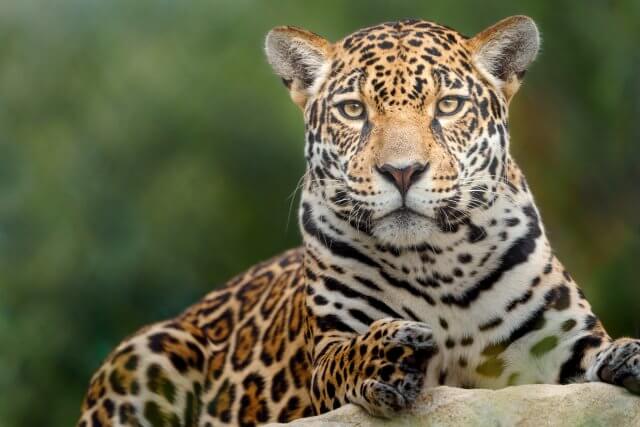The Cruel Reality of Jaguars in Captivity: Unveiling the Dark Side
Unveiling the truth: The Dark Side of Keeping Jaguars in Captivity
Reality Of Jaguars:
Discover the hidden truth about keeping jaguars in captivity. UnThe practice of keeping jaguars in captivity has gained popularity in recent years, with many individuals and organizations seeking to showcase these majestic creatures. However, behind the allure of having a jaguar in captivity lies a dark side that needs to be acknowledged. This article aims to shed light on the ethical, environmental, and conservation concerns associated with keeping jaguars in captivity. By understanding the implications, we can make informed decisions and promote the well-being of these magnificent animals in their natural habitats.
Reality of Jaguars: The Ethical Concerns of Keeping Jaguars in Captivity
The Ethical Concerns of Keeping Jaguars in Captivity
Reality of Jaguars: Keeping wild animals in captivity has long been a controversial topic, and the jaguar is no exception. While some argue that captivity can help protect endangered species and educate the public, others believe it is an unethical practice that compromises the well-being of these majestic creatures. In this article, we will explore the dark side of keeping jaguars in captivity and shed light on the ethical concerns surrounding this practice.
One of the primary ethical concerns is the issue of confinement. Jaguars are solitary animals that require vast territories to roam and hunt. In captivity, they are often confined to small enclosures that pale in comparison to their natural habitat. This confinement can lead to stress, boredom, and even psychological disorders. It is simply not possible to replicate the freedom and stimulation of the wild in a captive environment.
Another ethical concern is the impact on the jaguar’s physical health. In the wild, jaguars have a diverse diet that includes a variety of prey species. In captivity, they are often fed a monotonous diet that lacks the necessary nutrients for their overall well-being. This can result in malnutrition, weakened immune systems, and a higher susceptibility to diseases. Additionally, the lack of exercise and space in captivity can lead to obesity and muscle atrophy, further compromising their health.
Furthermore, the breeding practices in captivity raise ethical concerns. Many facilities breed jaguars solely for profit, without considering the long-term welfare of the animals. Inbreeding is common, leading to genetic issues and a higher risk of health problems in offspring. Moreover, the separation of cubs from their mothers at an early age for human interaction and entertainment purposes is emotionally distressing for both the mother and the cub. This unnatural separation can have long-lasting psychological effects on the animals.
Reality of Jaguars: The use of jaguars for entertainment purposes is another ethical concern. Many facilities offer opportunities for visitors to interact with these magnificent creatures, such as photo sessions or even allowing them to be used as props in movies or advertisements. While these activities may seem harmless, they often involve stressful and unnatural situations for the animals. The constant exposure to human contact can lead to heightened stress levels and a loss of natural behaviors.
Additionally, the illegal wildlife trade is a significant concern when it comes to jaguars in captivity. The demand for exotic pets and their body parts fuels the illegal trade, leading to the capture and trafficking of these animals. By supporting the captivity of jaguars, even in legitimate facilities, we inadvertently contribute to the demand for these animals, perpetuating the cycle of illegal trade and further endangering their wild populations.
In conclusion, the ethical concerns surrounding the captivity of jaguars cannot be ignored. Confinement, compromised physical health, unethical breeding practices, entertainment exploitation, and the illegal wildlife trade all contribute to the dark side of keeping these magnificent creatures in captivity. While some argue that captivity can serve conservation and educational purposes, it is crucial to consider the long-term welfare and natural needs of these animals. As responsible stewards of the planet, we must strive to protect and preserve these majestic creatures in their natural habitats, rather than confining them for our own entertainment or profit.
Conclusion
Reality of Jaguars: Discover the hidden truth about keeping jaguars in captivity. Un keeping jaguars in captivity has several negative implications. It can lead to physical and psychological distress for the animals, as they are confined to limited spaces and deprived of their natural habitats. Captive jaguars often suffer from health issues, such as obesity and dental problems, due to inadequate diets and lack of exercise. Additionally, the breeding of jaguars in captivity can contribute to the illegal wildlife trade and further endanger their wild populations. Therefore, it is crucial to consider the dark side of keeping jaguars in captivity and prioritize their conservation in their natural habitats instead.
Read More About Jaguars From Wikipedia




